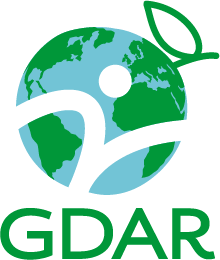GDAR researchers have been involved in a range of work in response to the COVID-19 pandemic.
COVID-19 prevention information translated into several widely spoken African languages
An Engage Africa Foundation translation team led by Ebele Mogo has translated information on preventing the transmission of COVID-19 into 19 languages spoken across Africa.
- Select a language, click, and download at http://www.engageafricafoundation.org/covid-19
- Found in Translation – University of Cambridge Stories article on the crowdsourced volunteer translation initiative led by Dr Ebele Mogo and the Engage Africa Foundation
Slum Health: Arresting COVID-19 & Improving Well-Being in Urban Informal Settlements
Tolu Oni was part of an international team of reseachers that pre-published a set of practice and policy recommendations that aim to dampen the spread of COVID-19, improve the likelihood of medical care for the urban poor whether or not they get infected, and provide economic, social and physical improvements and protections to the urban poor that can improve their long-term well-being.
- Read Jason Corburn, David Vlahov, Blessing Mberu, Lee Riley, Waleska Teixeira Caiaffa et al. Slum Health: Arresting COVID-19 & Improving Well-Being in Urban Informal Settlements. Journal of Urban Health (2020) 97, 348–357.
Sentiment and opinion analysis of public space physical activity in Lagos during lockdown
Research has started on a Cambridge Africa Alborada COVID emergency call award: Sentiment and opinion analysis of public space physical activity in Lagos during lockdown: a data-driven approach to developing context-aware public health messaging to reduce disease vulnerability and improve COVID-19 control.
This project is led by Tolu Oni, and is a collaboration with Associate Professor Taibat Lawanson at the University of Lagos Centre for housing and sustainable development and Associate Professor Camaren Peter at the Graduate School of Business and Centre for Analytics and Behavioural Change at the University of Cape Town.
This project aims to conduct opinion analyses of public space leisure physical activity to explore perceptions of government lockdown restrictions (and enforcement), and the impact of these lockdown measures on the perceptions, nature and frequency of appropriation of public space for activity in Lagos. Findings will inform development of context-aware public health messaging that safely encourages physical activity in the short term and health foresight interventions to reduce co-morbidity-associated vulnerability to future health emergencies long-term.

